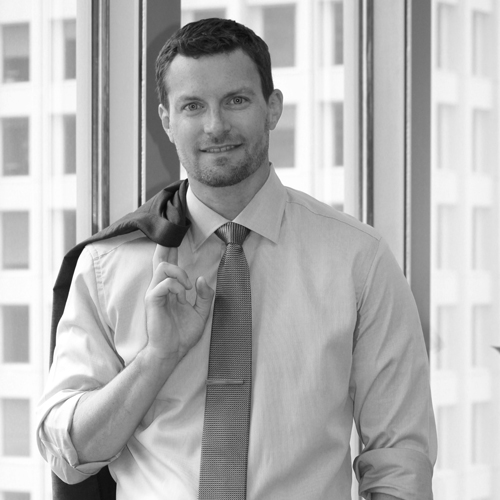I deal with change well, and that’s good for a lawyer, particularly in the media and technology space, because things change quickly. Managing change well is critical to success. My father worked for the State Department, so I spent a lot of time in Ecuador and Panama. Being surrounded by different cultures enabled me to explore and realize that there are different ways to do things.
I was always the new kid. I moved around a lot and became a product of Washington, DC, public schools. You have to size up what’s going on quickly, make adjustments, and quickly understand the cultural norms and rules.
I always wanted to be an in-house attorney. Even at a law firm, I knew that in five to seven years I would try to move in-house. That colored my choices about what practices I would specialize in. I picked M&A and securities because I thought that would set me up well for a career in-house. I would try to get as much information as I could from my clients about what their in-house attorneys did.
People think you can prepare for life as a general counsel; the best way to prepare is to become an expert in one area and then build on that foundation by broadening your experience and skill set over time.
A partner in my former law firm stressed the importance of treating people with respect. That’s especially important for anyone in leadership. There’s such a big competition for talent, so you have to make work exciting and give people freedom. The cost to replace talent is high, and working well together helps retention.
I caught the Internet bug early. I worked for the company featured in the documentary film Startup.com. The movie shows our dramatic rise and eventual collapse at govWorks. The company filed for bankruptcy, but it was a great experience for a young lawyer, because I got to be right in the middle of everything. I was confronted with high-level strategic and stressful situations at the early stages of my career, and that gave me exposure to the major legal issues that impact a company. You must really understand the high stakes of what you’re doing and how people rely on you. It wasn’t like being a junior associate at a law firm, where you’re one person on a large legal team.
I try not to eat by myself. I reserve two or three time slots each week for drinks or a quick dinner with clients, peers, or colleagues. I interviewed at AOL because of a connection from a high school friend who knew I was looking for work. Most opportunities I’ve had have come from networking. I think it takes about five or ten years for a connection to pay off. I try to make myself useful to people, whether that means solving a problem for them or making an introduction. So many things come back to relationships.
The best answer is sometimes a simple “yes” or “no.” Don’t speak to businesspeople like they are lawyers. They don’t want to hear jargon or “on the one hand X, and on the other hand Y.” Always keep it simple. Know your audience.
Do all the little things correctly all the way through. We had a proxy fight here at AOL and emerged successful. It was hard, because the future of the business was at stake. We won because we committed to doing the hard work. If you’ve done your best, things tend to work out.
Failing to prepare is preparing to fail. It’s so important to be prepared. Being the best-prepared person in any situation will never fail to work out well for you.
A revolution is coming, and it’s a very exciting time. Twenty years ago on Wall Street, you had to pick up the phone and call your broker. Today, if you want to make a trade, you click a button. The same thing is happening with advertising today, and AOL is at the forefront of this intersection of technology, media, and culture. I’m glad to be where I am.


